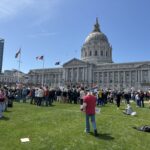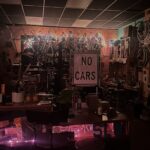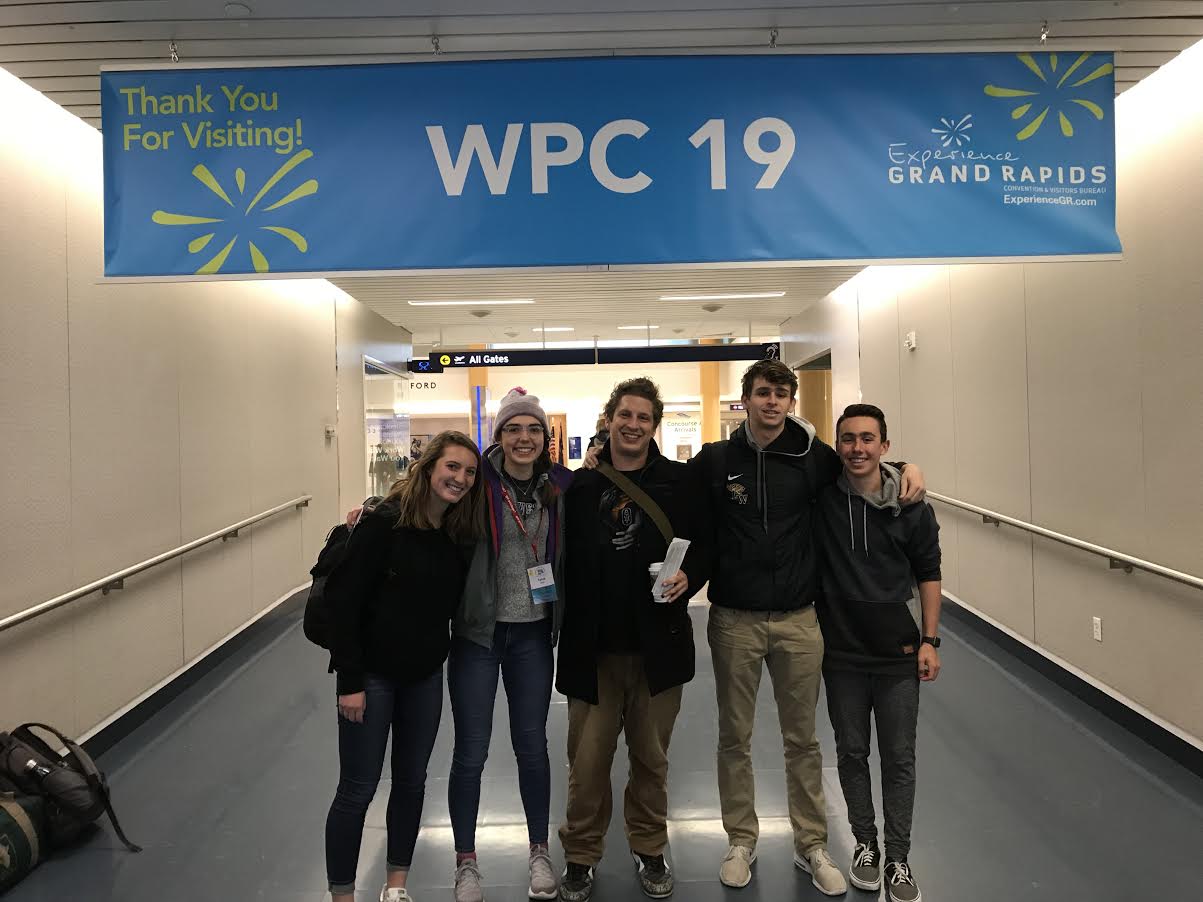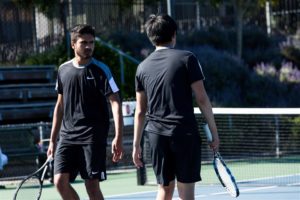On April 5th, four Lick students and one Lick administrator attended the annual White Privilege Conference in Grand Rapids, Michigan. This is the 12th year that Lick has sent students to the conference, covering all the costs of travel, food, and housing. This is the 17th year that the conference, founded and run by Dr. Eddie Moore Jr., has been held. The conference lasted for three days and three nights and showcased attendees from across the country, age groups, and professions. The conference has both a program for youths, called the Youth Action Project, and a track for adults. This year, the four Lick students who attended chose to attend the adult track. Participants had the opportunity to attend talks hosted by eight keynote speakers throughout their time in Grand Rapids, as well as attend eight workshops of their choice, featured films, and racial affinity groups.
This year, Gabe Castro-Root ‘21, Sarah Dean ‘18, Eli Simon ‘19, and I participated as representatives of Lick-Wilmerding along with faculty advisor Ben Cohn, the Center for Civic Engagement Associate. We attended different workshops in order to garner a variety of perspectives and new ideas to bring to group discussions and, more importantly, to bring back to Lick.
When asked about his favorite keynote speaker, Castro-Root responded, “My favorite speaker overall was David Stovall, who talked about public housing and the public school system in Chicago. He was super engaging.” Castro-Root learned about the dangers of closing public schools, particularly in cities, like Chicago, where most families don’t have the means to provide students with transport to other schools or send them to private school. The closing of these schools forces kids to go to other schools that are further away. There are then more kids at the schools that are still there, which leads to higher rates of incarceration and fewer educational opportunities for the students.
Castro-Root added, “I want to bring back to Lick the idea that doing public service or social justice work is really all about what the people or community you are helping really needs rather than coming in and imposing your own ideas of what to do to fix the issues. It is better to ask the people what they need and what you can do to help them achieve that. Also, if we could get any of the speakers to come here and talk, that would be great. I highly recommend the conference, everyone should try to go at some point.”
Simon’s favorite workshop, The Inevitable Oops: How White People Can Persevere Through Their Mistakes and Stay Actively Engaged in Anti-Racism Work, facilitated by Sarah Hershey, discussed “how white people often make mistakes in public speaking and how they should address it when a marginalized group becomes offended, so that they can understand and come back from the experience more knowledgable.” Simon continued his description by saying that “the workshop was really helpful for me because I learned a lot about my place of privilege, but also how I can be more understanding and actually educate myself on other people’s troubles that I might not see. I was given an acronym and step by step process on how to navigate the repercussions that come at me when I make a verbal mistake that is offensive to a certain group. That’s why I really liked it and why I feel like I can bring it back to Lick. Lick is not perfect, there are certainly groups and people of privilege who speak out of place at times, and I feel like it can be my role and responsibility to check them on that and teach them in a similar way to how I was taught at the White Privilege Conference.”
Dean responded saying, “My favorite workshop was a workshop called America’s Most Wanted: Hip-Hop the Media and Mass Incarnation, facilitated by JasiriX. It was focused on the relationship between hip-hop and media representation of black communities in America and its relationship to mass incarceration. JasiriX came to Lick last year and I would love to see him come again in the future. The workshop really sparked my interest in exploring more about that relationship. What I want to bring back to Lick is just continued thinking about how I can be the best ally possible in all circumstances in all places that life will take me. I want to work on really considering my own biases that I carry with me everyday, whether those be biases about gender and pronouns, ableism or really any other biases of oppression that I hadn’t thought about prior to my time at the White Privilege Conference. I am really excited to continue my learning on social justice activism in the future.”
Personally, my favorite workshop was called A Window into Racism and Healthcare: The benefits and tragedies of white privilege #opioid; it was facilitated by Amy Hunter, the social justice advocate and director of diversity at the Barnes-Jewish Hospital in St. Louis, Missouri. She spent the majority of her workshop discussing her story of battling racism with the employees of the hospital. Her goal in her work has been to confront the deep racism rooted within the city of St. Louis and attempt to amend the effects it has had on the way that nurses and doctors treat each other and the patients. She talked about how the objective of the hospital is to keep the patients safe and give them the best care possible, yet the racism of the staff has interfered with this goal. Ever since she started working at BJC hospital, just over a year ago, she has employed many diversity trainings and new policies that the employees must follow – failure to comply will now result in termination. She clearly stated that racist behavior will no longer be tolerated at the hospital. I really enjoyed this workshop because of the way Hunter explained the racism she experiences in St. Louis. The racism I am lucky enough to avoid experiencing because I am white becomes even more clear with blatant examples that stretch my view from my liberal San Franciscan ‘bubble.’ With this, the workshop, and the conference as a whole, has opened my eyes to my own blindspots around the blatant racism that is also alive within my own communities.
I, and the other participants, would suggest that students look into attending this eye-opening conference in the future. If people are interested, be sure to reach out to the Center as well of any of attendees.






